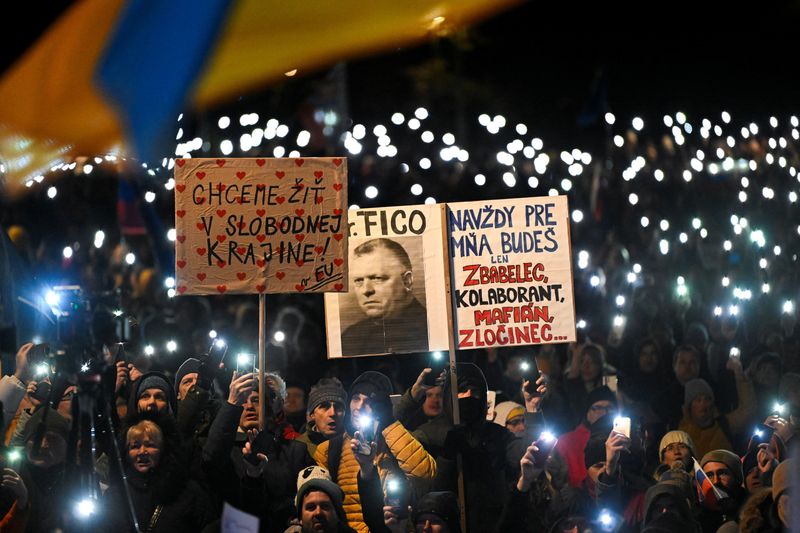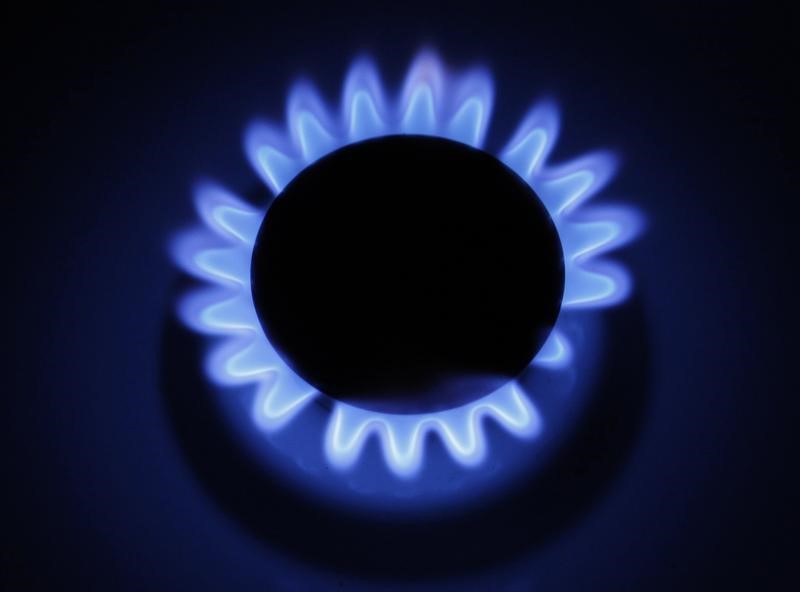BRATISLAVA (Reuters) – Thousands of protesters in the Slovak capital held banners and chanted slogans on Friday accusing Prime Minister Robert Fico of dragging the country into Russia after he met President Vladimir Putin last month amid a gas dispute with Ukraine.
Slovakia has been feuding with Ukraine over its decision to halt the transit of Russian gas through its territory from January 1, in a bid to cut off Moscow from the revenue stream.
Slovakia had been trying to maintain gas transit, and Fico met Putin in Moscow on December 22 after Ukrainian President Volodymyr Zelenskiy refused to expand any gas flows.
His trip to Moscow was only the third by an EU head of government since Russia invaded Ukraine in February 2022.
“Slovakia is Europe, we are not Russia,” one of the organizers told the crowd, waving Slovak and EU flags and holding signs reading “Slovakia stands with Ukraine” and “Enough Russia!” chanted. and “Too bad!”.
Organizers estimated that 15,000 people protested in Bratislava, filling a central square.
Fico has said that cutting off gas supplies through Ukraine will cost Slovakia around 1.5 billion euros in lost compensation for the transit of gas flows further into Europe and due to higher gas prices.
He has threatened to retaliate by possibly cutting humanitarian aid to Kiev, ending aid to Ukrainian refugees in Slovakia or cutting off emergency power supplies to Ukraine if Russia attacks its power grid.
“I am concerned that our government is steering us towards Russia and not on the side of its citizens,” said 45-year-old marketing professional Barbara Fandelova.
Fico has transformed the foreign policy of Slovakia, an EU and NATO member, since coming to power in 2023 by strengthening ties with Russia and refusing to provide military aid to Ukraine.
On Friday, he said Putin had promised that Russia’s Gazprom (MCX:) would find alternative ways to supply gas to Slovakia.
Last year, about 13.5 billion cubic meters of gas flowed through Ukraine, of which about 3 billion cubic meters of gas was for Slovak consumption.

The EU has said there was no need to extend the transit contract through Ukraine and that countries receiving Russian gas had access to alternative supplies.
Ukraine’s Foreign Ministry said Friday that the problem has to do with Russia and the unwillingness of “certain politicians” to reduce their dependence on Moscow.


